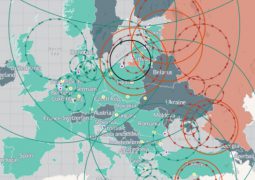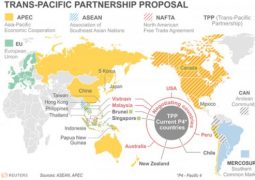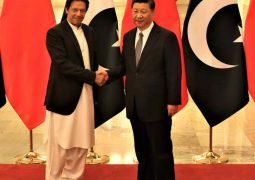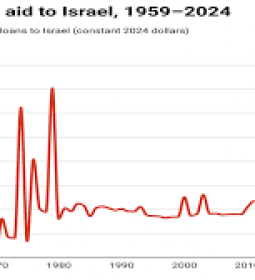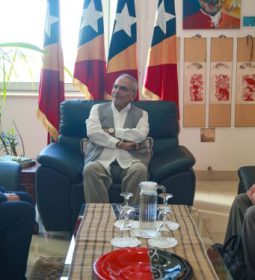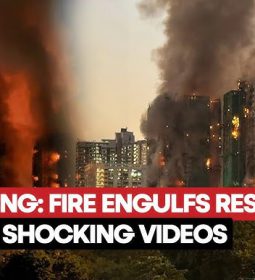US Congressmen want answers from CDC director on China’s respiratory virus spike
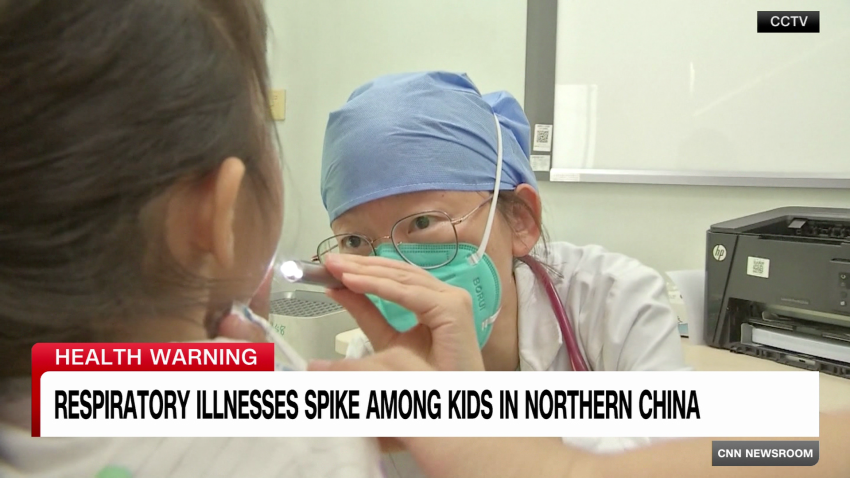
In her first appearance before Congress as director of the Centers for Disease Control and Prevention, Mandy Cohen faced a barrage of questions Thursday from Republicans about a new spike in respiratory illness in China and whether the agency had erred in its early recommendations to contain the coronavirus.
The hearing represented one of Cohen’s first public opportunities to restore trust in the agency, which became a punching bag for Republicans who opposed school closures, vaccine mandates and masking requirements in response to the coronavirus pandemic. Cohen’s appearance came as clusters of pneumonia in Chinese children emerge as the latest public health issue enmeshed in geopolitical conflict.
GOP lawmakers cast the rising viral activity as suspicious and reminiscent of the early days of the pandemic. But Cohen joined other public health experts in describing the situation as the usual fluctuations of any respiratory virus season.
“We do not believe this is a new or novel pathogen,” Cohen testified before the House panel that oversees the CDC.
She said the increase was driven by familiar threats: covid-19, influenza, respiratory syncytial virus (RSV) and mycoplasma, a bacterium that can infect the lungs.
Experts say what’s happening in China could be the result of children susceptible to pathogens they were not exposed to while social distancing to avoid covid. It was a trend observed around the world, including in the United States last year amid an unusual RSV surge. China finally eased its strict covid restrictions starting December 2022, long after other countries did so.
“You have three years’ worth of those individuals as kindling for these respiratory viruses,” said Amesh Adalja, an infectious-disease specialist and senior scholar at the Johns Hopkins Center for Health Security. “It makes biological sense, and it’s not surprising given many countries in the world experienced this last year.”
Authorities from China’s National Health Commission in November attributed the rise in respiratory illnesses to known pathogens and the lifting of coronavirus restrictions.
Republican members of Congress said assurances from the Chinese government should not be trusted, especially after Chinese officials had shared little information about the emerging coronavirus threat from Wuhan.
“It brings us back, sadly, to the early days of covid-19,” said Rep. Cathy McMorris Rodgers (R-Wash.), who chairs the House Energy and Commerce Committee, which oversees the CDC. “The lack of reliable information coming out of China is a troubling parallel to 2020.”
But public health experts who have been critical of China’s opaque response to covid say they do not see such a parallel.
“Both things can be true: China can be deceptive, China can be very opaque and China can withhold lots of information, but it also could be this outbreak is ordinary,” Adalja said.
Cohen told the panel that CDC staff members who work in China have reported there is no novel pathogen at play. She said this was corroborated by “other sources from our European Union partners and others to make sure that we are getting a complete picture.” CDC spokespeople did not immediately elaborate on what sort of corroborating information Cohen was referring to.
The World Health Organization says it has asked China to share more epidemiological and clinical information about the clusters of pneumonia in children. Lawmakers who distrust the WHO after its dealings with China during covid called on the Biden administration to do more.
“We are hoping that you can put some pressure in an attempt to try to get China to not mislead the world as they did with covid-19,” Rep. H. Morgan Griffith (R-Va.), chairman of the subcommittee on oversight and investigations that conducted the hearing, told Cohen.
Yanzhong Huang, senior fellow for global health at the Council on Foreign Relations, said there is no evidence so far to suggest the Chinese government’s explanation for the latest respiratory virus uptick lacks credibility. But he says concerns about health information sharing after covid remain valid, noting agreements that came out of the recent meeting between President Biden and Chinese leader Xi Jinping did not include public health.
“The problem remains there, so we cannot just categorically take wholesale what the government says,” Huang said. “There’s no serious dialogue between the two governments on how they should be cooperating with each other.”
As the United States experiences its own rise in respiratory viruses, Cohen said the agency projects a similar level of hospitalizations as last season. She said RSV is nearing its peak, but flu season is just starting in most of the country and covid continues to be the primary driver of hospitalizations for respiratory illness with 15,000 admissions a week.
The hearing was largely cordial, though Cohen also fielded sharp questions from Republicans attempting to get her to say the CDC erred in its prior guidelines for masking and covid precautions in schools. She did not budge, noting public health officials operated with less information and without vaccines in the early stages of the pandemic.
- Previous Burmese military is losing ground against coordinated nationwide attacks by Western backed opposition hopes
- Next Chinese bank says it has ‘huge’ debt ($65 bn) and can’t pay its bills



